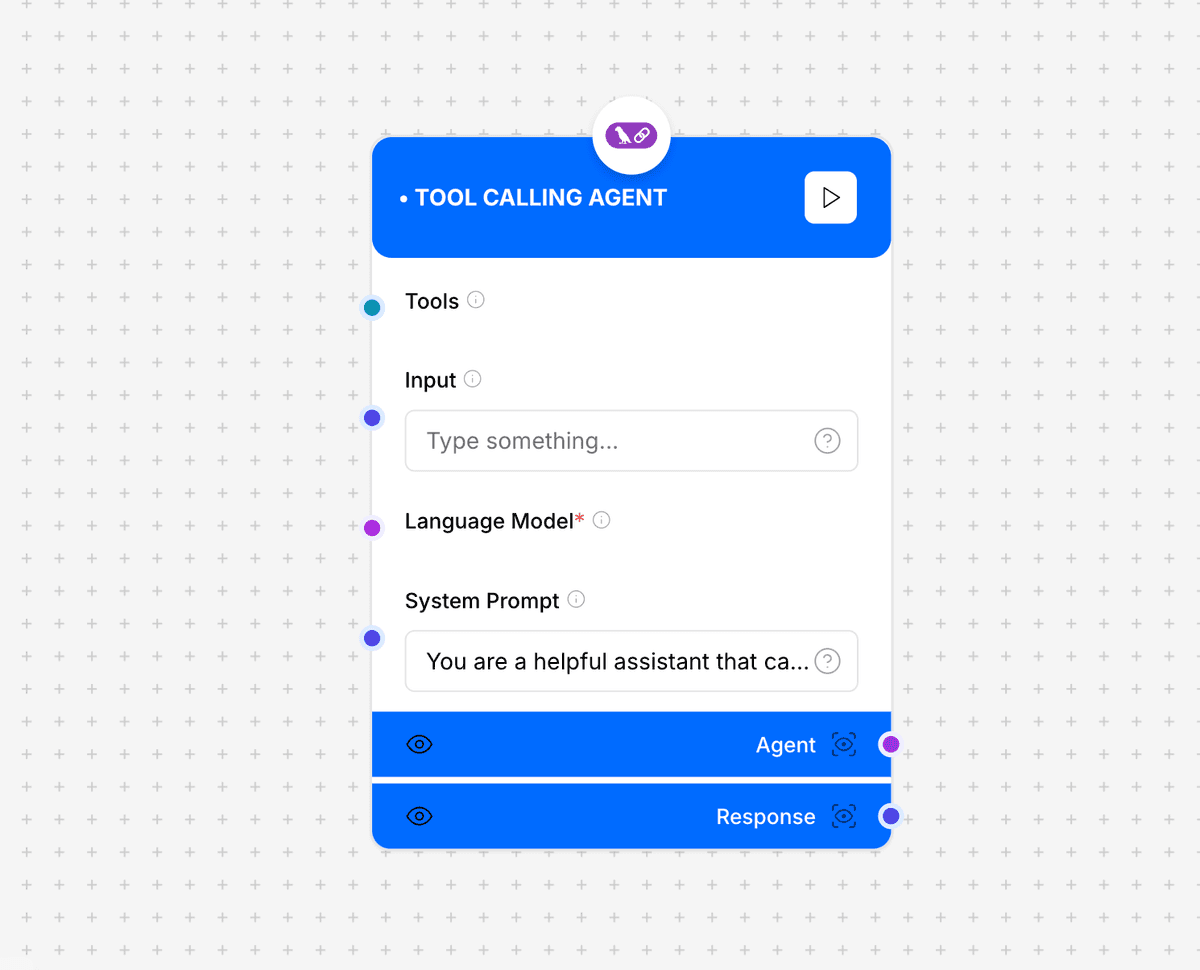Tool Calling Agent
The Tool Calling Agent is a specialized component that manages tool execution and interaction through natural language processing.

Tool Calling Agent interface and configuration options
Configuration Parameters
Required Parameters
- Tool: Available tools configuration
- Language Model: The AI model for processing
- Agent Description: Description of agent capabilities (Deprecated)
- System Prompt: Base prompt for the agent
- Chat History: Conversation context
Output Format
{
"agentId": string,
"toolsUsed": array,
"response": {
"result": any,
"metadata": {
"processingTime": string,
"toolCalls": number
}
}
}Example Usage
const toolCallingAgent = new ToolCallingAgent({
tool: ["calculator", "web-search", "file-reader"],
languageModel: "gpt-4",
agentDescription: "A helpful assistant that can use various tools",
systemPrompt: "You are a helpful assistant that can use various tools...",
chatHistory: []
});
const result = await toolCallingAgent.process({
input: "Calculate the square root of 16 and search for its history"
});Additional Resources
Best Practices
- Configure appropriate tools for the task
- Maintain clear system prompts
- Monitor tool usage and performance
- Handle tool errors gracefully
- Regular validation of tool responses